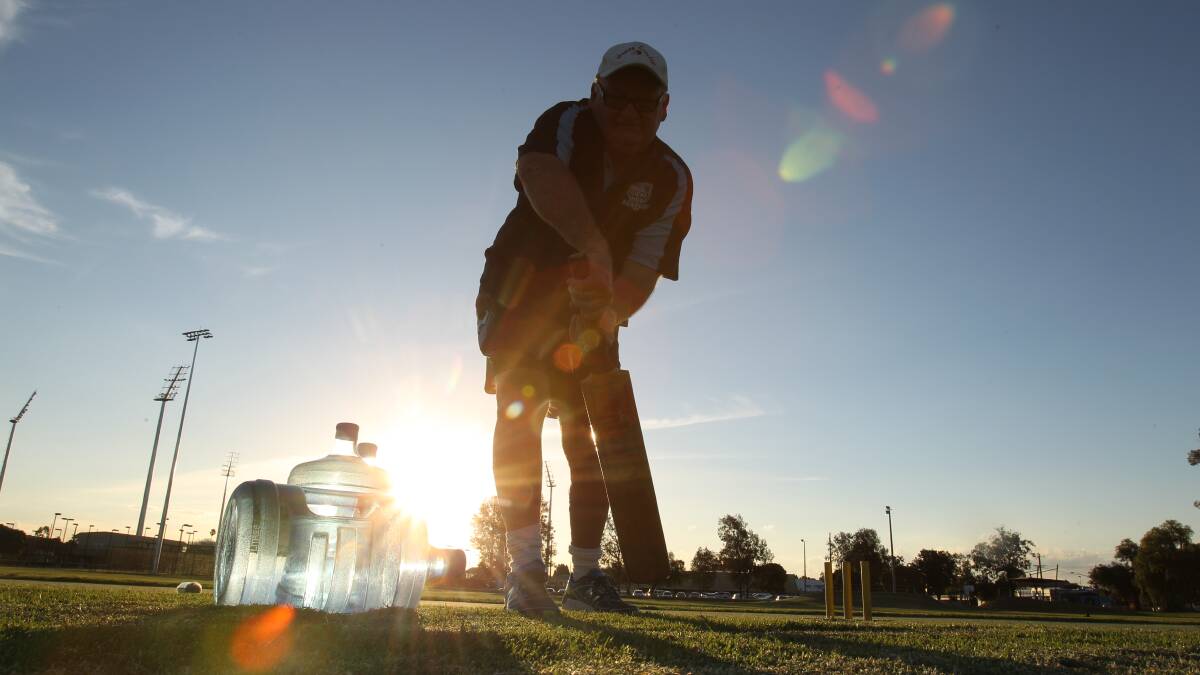
The consensus is in. The Wagga Effect is real. It’s the phenomenon that has dominated the sporting lexicon for decades: why does Wagga produce so many sports stars? The list is endless - and across all codes of sport. It’s safe to say, the city is pretty darn proud of what it achieves on the sporting field. It’s unmatched, unrivalled, unwavering. But is it all in our head? Brodie Owen explores.
Subscribe now for unlimited access.
$0/
(min cost $0)
or signup to continue reading
“It’s not the five o’clock wave,” renowned Wagga cricket coach Warren “Wazza” Smith jokes. “This stuff is real.”
It’s Tuesday afternoon, the Riverina sun burns the skin cells, the humidity is unpleasant and Wazza is on the pitch shaping the next crop of Geoff Lawsons, Michael Slaters and Mark Taylors.
The coach of 45 years is consistently outspoken - and it’s a badge he wears with honour. Over the years, Wazza has criticised the city over its apparent failure to beef up sporting facilities, its “ineffective” promotion of the City of Good Sports and is adamant clubs should always reimburse their players.
"You can always tell a country kid from a city kid. Country kids have had to work harder - and it's been bloody good grounding."
- Warren Smith
He could talk about issues in sport forever and a day but there is one gripe he sees as a positive.
“Our players have had to bleed,” he says. “You can always tell a country kid from a city kid. Country kids have had to work harder - and it’s been a bloody good grounding.
“It’s the only city in Australia that is called the City of Good Sports and it’s that way for a reason.
“When we arrive in Sydney, or wherever it may be, we’ve gone through more to get there.”
Wazza rattles off tales of parents and volunteers who drive hundreds of kilometres to reach that weekend’s cricket match. Heaven knows what kind of outrageous petrol bills fully fledged sporting families have.
He says it’s something all Wagga’s athletes need to remember.
"Don’t forget your roots, don’t forget what has been sacrificed to get you where you are and remember where you came from."
- Warren Smith
“Don’t forget your roots, don’t forget what has been sacrificed to get you where you are and remember where you came from,” Wazza says.
“There are a hell of a lot of volunteers in this business and they are more important than anyone - I don’t care what people say.”
Much earlier on in the day there was evidence of Wagga’s sporting prowess back on home turf.
Emerging Swans’ forward Harry Cunningham was here to spread the good word about Aussie rules.
Could this be the argy bargy of football codes jostling for reach or is something much more powerful at play? Is this Wazza’s “don’t forget your roots” doctrine - and is it fuelling the next generation of Wagga affectees?
If you ask feared Australian soccer midfielder Sally Shipard, who retired last year, it’s high time renowned Wagga athletes “stepped up and gave back”.
“I want to give back to the community and contribute to the Wagga Effect in some form,” she says.
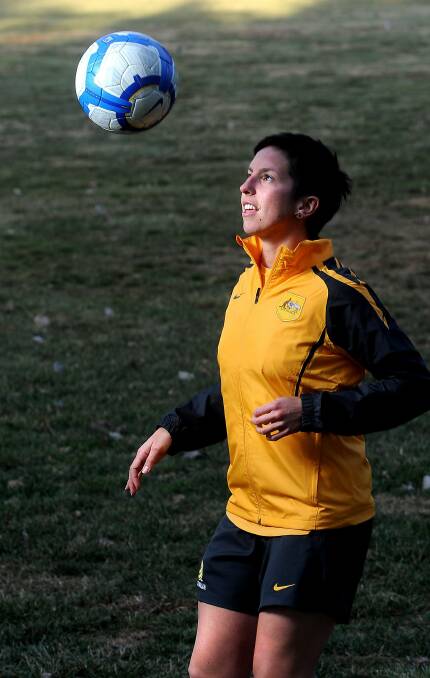
Many high profile sports stars have questioned whether the Wagga Effect will eventually come to an end.
Five years ago, former Test captain Mark Taylor made waves when he blamed technology for the demise of the phenomenon, arguing that sport was taking a backseat to iPhones and video games.
“I think my concern at the time was that there were a lot more things people could do with their time. It’s still the same,” he says.
“In the ‘60s and ‘70s we were always thinking about what we could do after school and that always involved a bat and a ball.”
Shipard agrees that modern day pressures could be having an influence on the Wagga Effect.
“We can’t just rely on the water,” she says. “There has to be something else we can do.”
The former soccer player does not rule out the idea that technology is disintegrating the Wagga Effect but she says it’s too early to tell.
It’s why she sticks to her guns that famous Wagga products should regularly return to the city to inspire the little leagues.
But, for now, she says, there is something else working in Wagga’s favour - so long as our population doesn’t grow too rapidly.
"We can’t just rely on the water. There has to be something else we can do."
- Sally Shipard
“When you’re from a place of between 60 to 80,000 people. It’s the right amount of people to get the quality you need, but it is also the right amount of people to get exposed at that level,” she explains.
“The pond is small but it’s still competitive enough to develop your game.”
It’s these kinds of secondary factors which have been backed up by research.
Gold Coast-based Griffith University Professor Kristine Toohey was awarded a sizeable grant in 2010 to study the “non-physical” factors that mould sporting greats.
“We found there were a lot of other factors that made someone successful,” Toohey says.
“We call them biophysical factors, such as socioeconomic status, your peers, your distance, how good your manager is.
“The great thing about Wagga is that you have produced athletes across a variety of sports.”
Toohey doesn’t discount the Wagga Effect, but says success is more to do with development systems across sporting codes.
“What good is it for people to know where you are born?” she asks.
“I’m not debunking the Wagga Effect, but what Wagga has done really well is not being a place where talented athletes are born, rather it is a place that has allowed players to develop.
“It would make no sense for people to move to Wagga based on giving birth to a child that has a higher chance of becoming an elite athlete.”
Enter “Captain Courageous”.
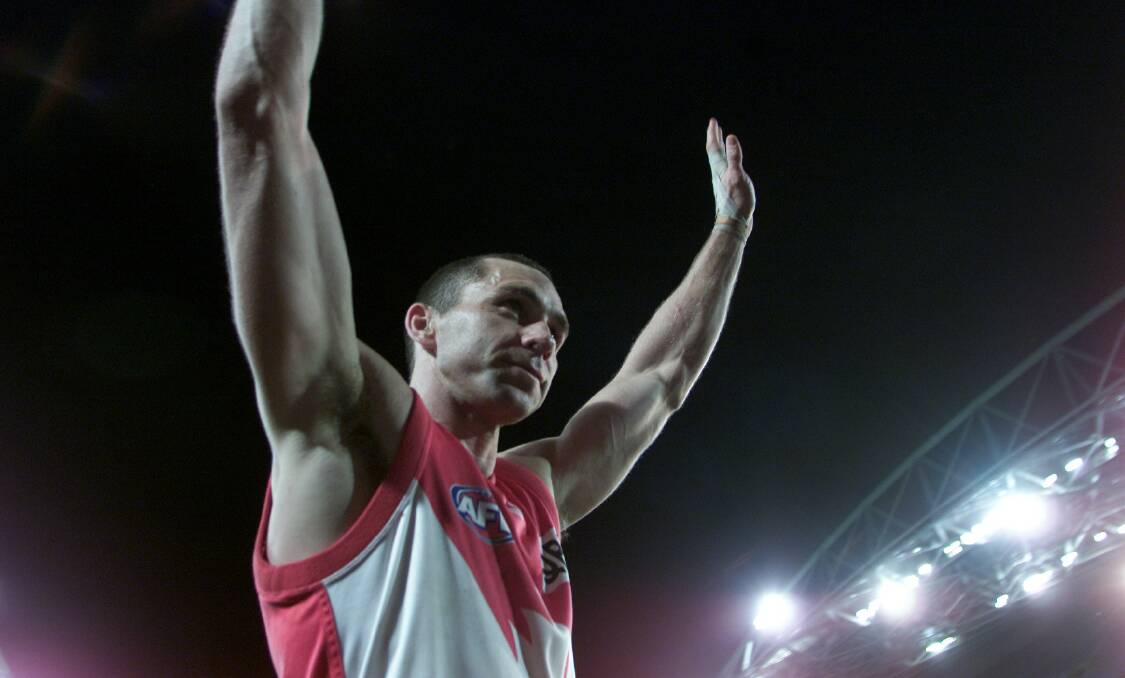
Paul Kelly earned the nickname in his nine years’ as the Sydney Swans’ skipper. The midfielder is decorated in accolades and was inducted into the Australian Football Hall of Fame in 2007.
But Kelly - an AFL giant - cut his teeth playing rugby league for Wagga Brothers.
“We were a bit lucky, mate, as kids growing up,” he says.
“We did what we wanted to do. Most of us got into everything - all different kinds of sports - we had good facilities and parents that were willing to back us up.”
Rugby league star Steve Mortimer reminisces about the “different era” in which the Mortimer dynasty grew up. People were kinder, sportsmanlike, invested and exposed, quite heavily, to Wagga’s four codes of football.
Steve says sporting harmony trickled down from the heads of the family - mum and dad.
“In the 60s and 70s, life was a little bit simpler for parents and kids,” he says.
“They thought it was a great idea to participate. They would go and watch the game and what that did for myself and my brothers is that we could talk post-game over dinner where we could improve.
“It was a different era.”
Chris Mortimer, the younger of the famous brothers, was known to sneak one-and-a-half more biscuits of Weet-Bix than Steve.
Steve says it’s probably why he’s the “toughest” Mortimer.
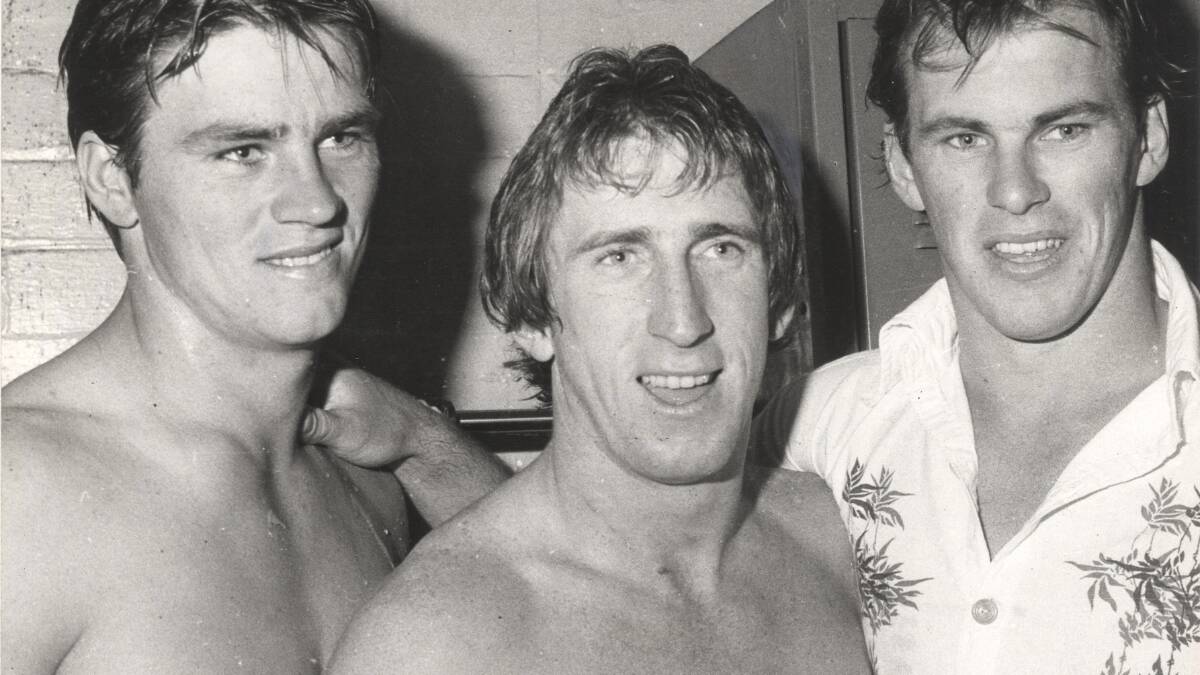
But this toughness is due to something else, Chris says, and again it harks back to the role of parents in sport.
The late Ted Mortimer was a stalwart of Wagga police - and he appeared on television to spread a message about road safety.
The cruel irony was that he died in a car crash in 2005 near Millthorpe, in central-west NSW.
Chris recalls his father as a disciplined man.
“He didn’t just pat you on the back, but he gave you a kick up the bum as well,” he says. “He was very influential, my old man. It is how all my brothers learned in life. Perhaps that should be around a little bit more today.”
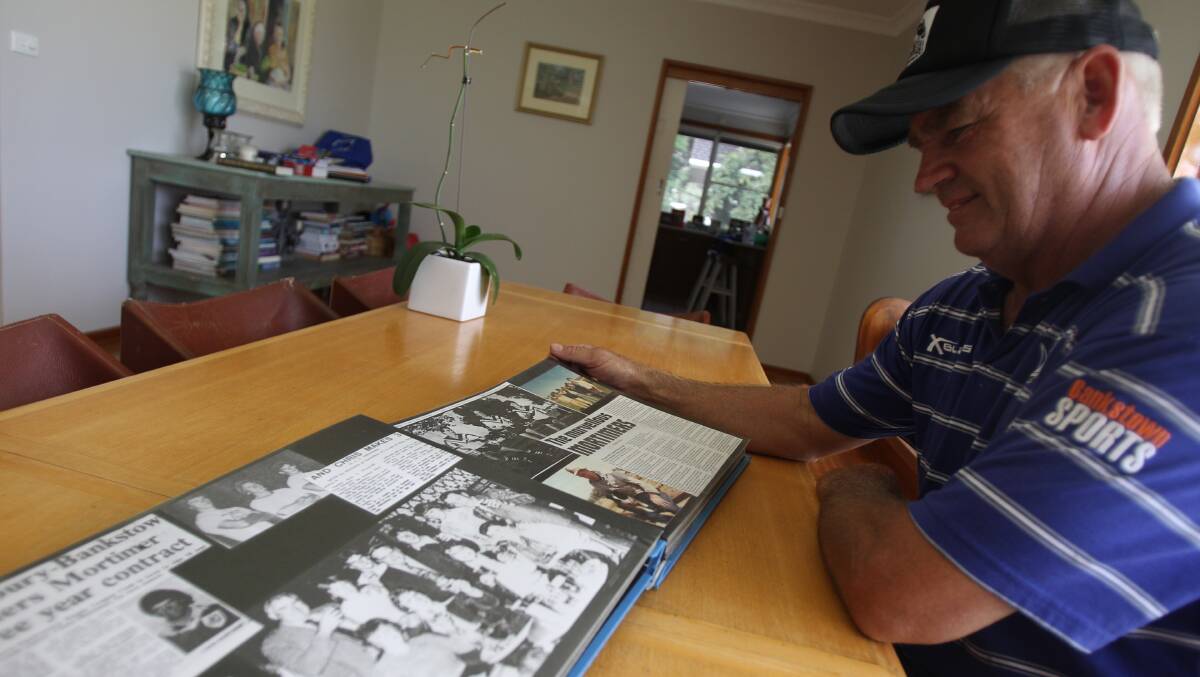
Chris says the Mortimers were a tight-knit unit. For the Wagga Effect to thrive and survive, he urges, families needed to come together through sport.
“It is so, so important,” he says. “(The Wagga Effect) may have dropped off a bit. Life has become busier, there is less time, but a parent’s biggest investment is in their children. “You get more out of them if you invest a little more in them. You reap the rewards later in life.”
One of those Wagga athletes reaping rewards is Harry Cunningham.
Chris says Cunningham is proof the Wagga Effect still exists.
“You only have to take one glance at the Harry Cunninghams to see that,” he says.
“It may not be as plentiful but it is still there.”
Cunningham told Ashmont Public School students to be be proud of the city’s sporting history on his last visit.
“It’s so good to see so many good sportsmen and women come out of Wagga and to be able to come back here and spread that word is massive,” he says.
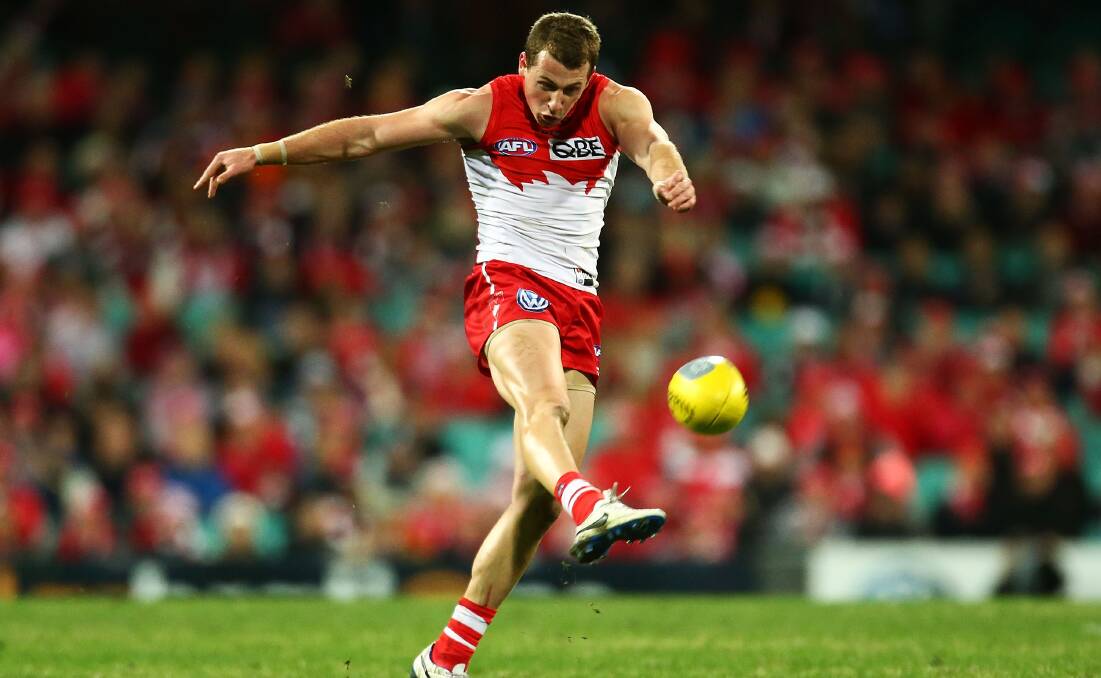
“It’s invaluable to kids these days and at my age I would have loved it.
“Wagga is not the smallest town - it’s not the largest - but there are so many great sports you can participate in. You’ve got that country background - that hard edge - that makes you work harder.”
Is the Wagga Effect dead?
“Absolutely not,” he says, firmly.
“It’s only going to get better.”

